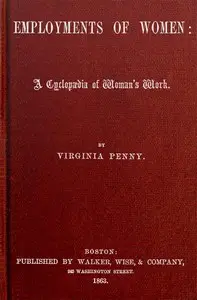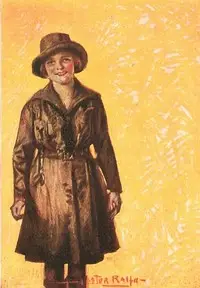"The Long Road of Woman’s Memory" by Jane Addams is a study that looks at the important role of women’s memories in shaping society and individual identities. The book focuses on how the stories and experiences of women, particularly older women, help form social ideas and community knowledge. Using observations from Hull-House, the author shows how memories of hardship and strength bring light to deeper social realities and can question the rules people live by. One major example is the "Devil Baby" story, which encourages women to share their own stories, revealing both personal challenges and a push against normal society through collective remembering.

The long road of woman's memory
By Jane Addams
Discover how the shared memories of women challenge societal norms and reveal untold stories of survival and defiance.
Summary
About the AuthorLaura Jane Addams was an American settlement activist, reformer, social worker, sociologist, public administrator, philosopher, and author. She was a leader in the history of social work and Women's suffrage. In 1889, Addams co-founded Hull House, one of America's most famous settlement houses, in Chicago, Illinois, providing extensive social services to poor, largely immigrant families. Philosophically a "radical pragmatist", she was arguably the first woman public philosopher in the United States. In the Progressive Era, when even presidents such as Theodore Roosevelt and Woodrow Wilson identified themselves as reformers and might be seen as social activists, Addams was one of the most prominent reformers.
Laura Jane Addams was an American settlement activist, reformer, social worker, sociologist, public administrator, philosopher, and author. She was a leader in the history of social work and Women's suffrage. In 1889, Addams co-founded Hull House, one of America's most famous settlement houses, in Chicago, Illinois, providing extensive social services to poor, largely immigrant families. Philosophically a "radical pragmatist", she was arguably the first woman public philosopher in the United States. In the Progressive Era, when even presidents such as Theodore Roosevelt and Woodrow Wilson identified themselves as reformers and might be seen as social activists, Addams was one of the most prominent reformers.


















